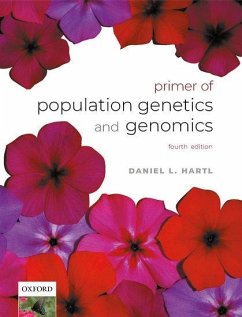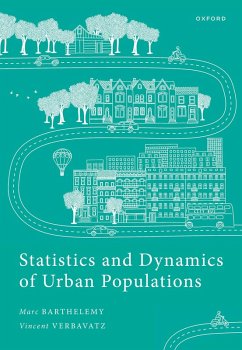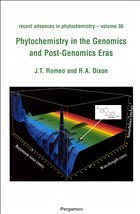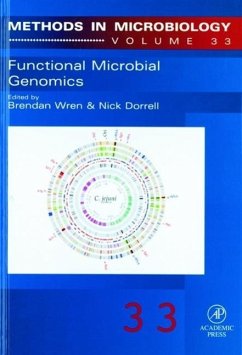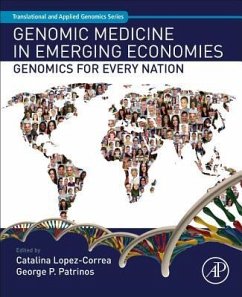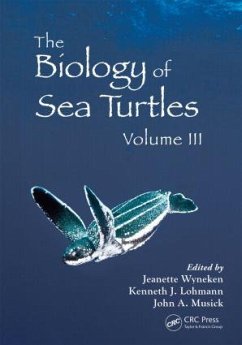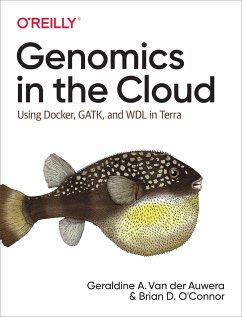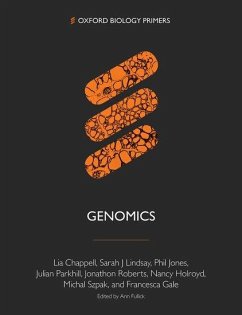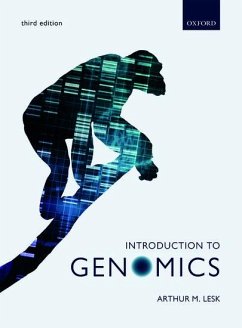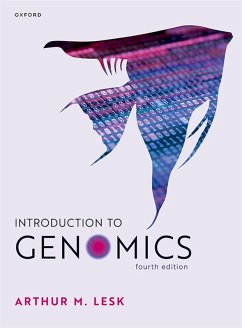Nicht lieferbar
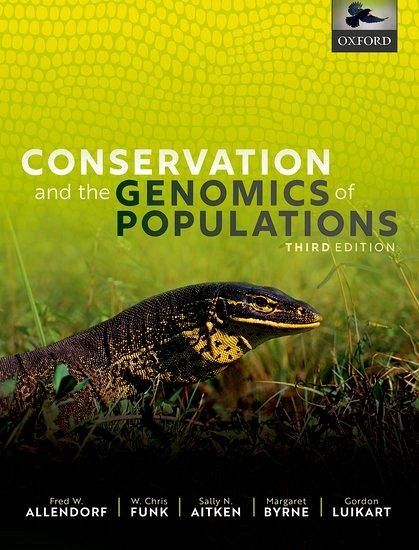
Fred W. Allendorf (Regents Professor Em Regents Professor EmeritusW. Chris Funk (Professor, Professor, Department of Biology, ColoradSally N. Aitken (Professor and Research Associate Dean and Innovat
Broschiertes Buch
Conservation and the Genomics of Populations
Versandkostenfrei!
Nicht lieferbar




The third edition of this established textbook provides an updated and comprehensive overview of the essential background, concepts, and tools required to understand how genetics can be used to conserve species, reduce threat of extinction, and manage species of ecological or commercial importance.
Fred W. Allendorf is a Regents Professor Emeritus at the University of Montana, USA. He was awarded the Molecular Ecology Prize in 2015, and he was elected to the American Academy of Arts and Science in 2019. He is a past President of the American Genetic Association, and former Director of the Population Biology Program of the US National Science Foundation. He has taught conservation genetics throughout the world, including the University of Western Australia, the Victoria University of Wellington, the University of Costa Rica, the Organization for Tropical Studies in Costa Rica, and the National Zoological Garden of South Africa. W. Chris Funk is a Professor in the Department of Biology and Director of the Global Biodiversity Center at Colorado State University, USA. He has published over 100 articles on the conservation genomics and evolutionary ecology of amphibians, fish, birds, mammals, and stream insects in North and South America. He is a Leopold Leadership Fellow and was a Fulbright Scholar at the Universidad del Los Andes, Bogotá, Colombia. He is actively involved in improving the incorporation of genetics into international conservation policy as a member of the IUCN Conservation Genetics Specialist Group, GEO BON Genetic Composition Working Group, and SCB Conservation Genetics Working Group. Sally N. Aitken is a Professor in the Department of Forest and Conservation Sciences in the Faculty of Forestry at the University of British Columbia, Canada. She leads the Centre for Forest Conservation Genetics. Her research integrates genomic, phenotypic, and climatic data to understand the processes driving local adaptation to climate, and how management can facilitate the adaptation of populations to new climates and other threats. She received the Canadian Forestry Scientific Achievement Award in 2009, the International Union of Forest Research Organization's Scientific Achievement Award in 2014, and was elected a Fellow of the Royal Society of Canada in 2017. Margaret Byrne is Executive Director of Biodiversity and Conservation Science in the Western Australian Department of Biodiversity, Conservation and Attractions, and is an Adjunct Professor at the University of Western Australia and Curtin University in Western Australia. She serves on the Australian Academy of Sciences National Committee for Ecology, Evolution and Conservation, and the Management Committee for the Genetics Society of Australasia. She undertakes conservation genetics research to inform biodiversity conservation strategies for rare and threatened species and for management of landscapes, including climate adaptation. She leads a strong science group providing an evidence-based approach to conservation management and policy in Western Australia. Gordon Luikart is a Professor at the University of Montana, USA. He has published numerous articles on the conservation and genetics of fish, mammals, and insects. He was a Fulbright Scholar at Latrobe University in Melbourne Australia, and won a Bronze medal as top scientist in France's CNRS. He was named one of the "Most Influential Scientific Minds" in 2014 by Thomson Reuters for publishing highly-cited papers. He taught conservation genetics in Portugal, South Africa, and globally on-line. He actively works to incorporate genetics into conservation as a member of the IUCN Conservation Genetics Specialist Group, and GEO BON Genetic Working Groups.
Produktdetails
- Verlag: Oxford University Press
- 3 Revised edition
- Seitenzahl: 672
- Erscheinungstermin: 15. Februar 2022
- Englisch
- Abmessung: 244mm x 188mm x 34mm
- Gewicht: 1476g
- ISBN-13: 9780198856573
- ISBN-10: 0198856571
- Artikelnr.: 62111356
Herstellerkennzeichnung
Libri GmbH
Europaallee 1
36244 Bad Hersfeld
gpsr@libri.de
Für dieses Produkt wurde noch keine Bewertung abgegeben. Wir würden uns sehr freuen, wenn du die erste Bewertung schreibst!
Eine Bewertung schreiben
Eine Bewertung schreiben
Andere Kunden interessierten sich für



